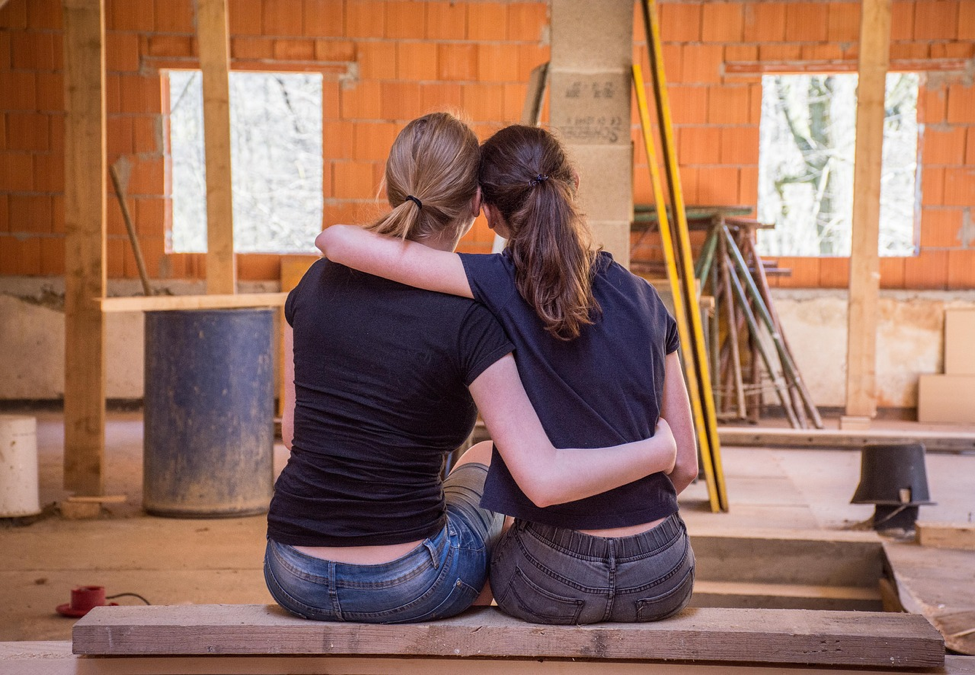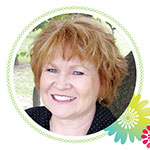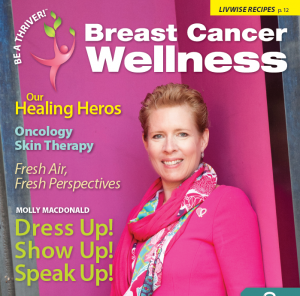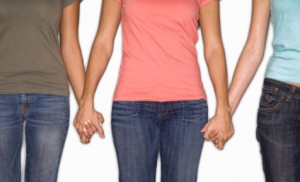
According to NationalBreastCancer.org, 1 out of 8 women will be diagnosed with breast cancer this year.
Unfortunately, this means that, over your lifetime, there’s a good chance that you’ll know a friend or family member who has breast cancer.
Sadly, if you receive this type of news, it can be difficult to find the right words to say to bring comfort to the one you love.
For that reason, we want to suggest 5 kind and compassionate things to say to someone who has been recently diagnosed with breast cancer.
It is our hope that you can use these suggestions to find positive, encouraging words that will uplift the women in your life who are fighting this courageous battle.
Keep reading to discover what we recommend…
Idea #1 – “I don’t know what to say, but I’m here for you.”
It’s 100% okay to not know what to say to someone with a new breast cancer diagnosis.
In fact, sometimes, it’s better not to say anything at all and let your loved one do the talking.
The simple line “I don’t know what to say, but I’m here for you” is a great way to let your friend or family member know that you’re at a loss for words.
Most important, this line can prevent you from saying something you can’t promise, like the phrase “Everything will be okay” that many people say out of habit.
The most important part of this sentence is the ending…“I’m here for you.”
It’s a great reminder to your friend or family member that, while you might not know what to say in the moment, you’ll always be there to provide support.
Idea #2 – “I’m here to listen.”

Actions often speak louder than words.
For this reason, we suggest letting your loved one know “I’m here to listen.”
This line gives your friend or family member the time to express her own thoughts, concerns, or worries before you speak.
It’s important to understand that your loved one will need time to process her thoughts and talking out loud can help her do just that.
After your loved one has had a chance to talk, you can then express what you feel is appropriate to say based on what has been told to you.
If you’re struggling to find the right words to say, don’t say anything at all. It’s just as valuable to lend your friend or family member a pair of supportive, listening ears.
Idea #3 – “Can I help you with X?”
When someone is diagnosed with breast cancer, it’s easy for her to become overwhelmed.
It’s likely that she will be left wondering how she will keep up with daily life while also fighting the battle of her life.
This is why our third recommendation is to simply ask your friend or family member, “Can I help you with X?”
Instead of talking about the diagnosis, simply ask how you can help. Doing this will remind the person you care about that she has people in her life that are going to help her keep moving forward.
We recommend that, when you ask how you can help, you are specific in your request.
For instance, you might ask, “Can I drive you to your doctor’s appointments?” or “Can I walk your dog twice a week?”
People are more likely to accept help when you are specific about what you’re offering to do.
Idea #4 – “What else is new?”

Sometimes, talking about a breast cancer diagnosis isn’t helpful–especially if a person has a lot of other people asking her questions and wanting information.
Instead, your loved one might want to take her mind off the situation and talk about other things like a hobby or vacation.
If you can tell that your family member or friend is having a hard time talking about the diagnosis, change the topic and see if that helps.
Ask anything from “What are your kids up to?” to “How did you enjoy that movie you went to see the other day?”
A lighthearted conversation on a topic other than cancer might be the best thing you can do to offer a little peace in the midst of a breast cancer diagnosis.
Idea #5 – “Where or how can I learn more about what you’re going through?”
We all know that getting diagnosed with breast cancer is a difficult, life-changing experience. However, unless you’ve been diagnosed yourself, you’ll never be able to put yourself in the shoes of the person you care about.
That being said, it is possible to educate yourself to get a better understanding of what your loved one is going through.
That’s why we recommend that you ask your friend or family member, “Where or how can I learn more about what you’re going through?”
Having this knowledge up front will equip you with the tools you need to ask the right questions and provide the best support for the one you love.
This knowledge will also help you become more empathetic toward your loved one who is on this challenging journey.
Do you have any recommendations for what to say to someone with a new breast cancer diagnosis? Let us know your thoughts in the comments below!











